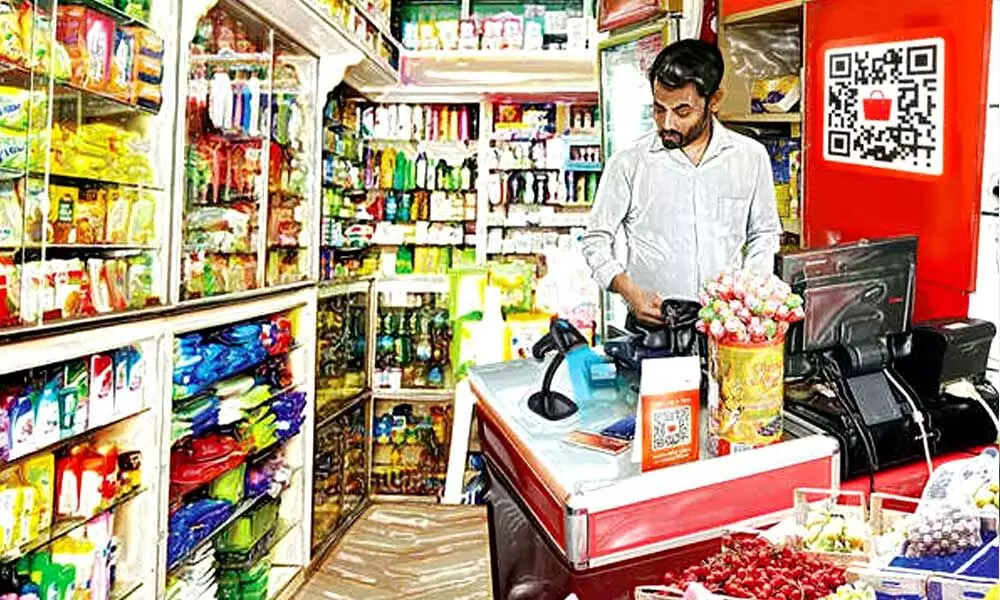Here's what India's MSME sector wants from Budget
Reducing compliance (GST) constraints and registration requirements for online players would help MSMEs digitise
image for illustrative purpose

A great boost to this sector would be if the budget could provide for tax exemption for investments that small shops and SME make towards digitisation of their business. This could be a good measure for the sector as it will ensure its growth
MSMEs were progressively reviving after the first two waves of the pandemic, which caused consequential disruption, restrictions imposed because of the current third wave have once again trampled small businesses.
In the upcoming union budget, what small retailers expect from the government is a crucial question. Of course, giving a push to digitalisation is the elemental thought right now, but there are plenty of things in the pipeline which develops along with that. India's retail and logistics industry, organised and unorganized in combination, employs about 40 million Indians (3.3 per cent of Indian population). The typical Indian retail shops are very small. Over 14 million outlets operate in the country and only 4 per cent of them being larger than 500 sq ft in size.
The present situation with the Omicron is taking a turn for the worse, like the first and second waves of Covid-19. Even the current wave looks like a dire situation for MSMEs and small retailers. As e-commerce has nibbled into the business of these retailers, even they have lost a lot of money during many lockdowns. But despite all the trials in the business, the multiple waves of Covid have forced the acceleration in digitisation of all businesses. Small retailers contribute to 25 per cent of India's GDP of $3 trillion, and still, they have hardly any options to digitise. They are dependent on physical walk-ins to make their business.
Multiple solutions to digitise storefronts of retail stores are now emerging, including concepts of virtual shops where sellers can communicate over live video calls and the customers can experience the same ecosystem as if they are physically walked in into the store.
Reducing compliance (GST) constraints and registration requirements for online players would help MSMEs digitise. The legislative framework should prioritise facilitating parity between offline and online retailers, as well as encouraging small businesses to take part in the digital economy and pursue growth.
After analysing this sector, a great boost to this sector would be if the budget could provide for tax exemption for investments that small shops and SME make towards digitisation of their business. This could be a good measure for the sector as it will ensure its growth. It's clear that, apart from the cash crunch and credit accessibility, one of the major problems has been the lack of digitalisation for small retailers. This remains a major challenge for the MSME sector, and it has forced many small businesses to shut operations in the pandemic.
But many new start-ups are creating offerings which can help the small retailers by taking their shops online. In fact, many MSMEs that somehow withstood the economic pressure during the two earlier waves of the pandemic are still struggling with the digital presence of their shops. As a result, a tax exemption for investments made by small shops and SME in digitisation of their businesses would be a good measure for the sector.
MSMEs' and the retail sector generate a high number of jobs, which are frequently disproportionate to the amount of money invested. Total retail employment in India, both organised and unorganised, account for about 6 per cent of Indian labour work force currently - most of which is unorganised. The sector is currently hoping for two things: a reduction in the overall tax burden and a simplification of compliance. Additional tax deductions for retail infrastructure investments, higher depreciation on capital goods used in the sector, and permitting input GST for all marketing expenses, including free samples, marketing collateral, and so on, are just a few of the possibilities. In simple terms, the industry expects the government to make the proper decision that will not only bring the through these difficult times, but will also ensure the sectors entire revival. We expect budget 2022 to include several of these policies and we believe these policies will help to achieve the goal of ease of doing business in India.
(The author is Co-founder, Kiko Live)

